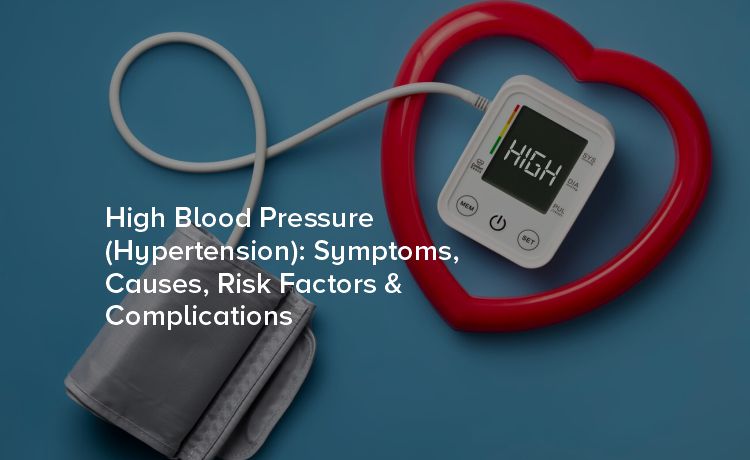
High blood pressure, or hypertension, is a condition that affects millions worldwide. Often dubbed the "silent killer," it creeps up without noticeable symptoms but can lead to severe complications if left unchecked.
Blood pressure is the force exerted by circulating blood on the walls of blood vessels. When this pressure is consistently too high, it puts extra strain on your arteries and your heart, leading to high blood pressure or hypertension. According to the American Heart Association, a blood pressure reading above 130/80 mm Hg is considered high.
Most people with high blood pressure do not experience any symptoms, even when blood pressure readings reach dangerously high levels. However, a few may experience headaches, shortness of breath, or nosebleeds, but these symptoms aren't specific and usually don't occur until high blood pressure has reached a severe or life-threatening stage.
High blood pressure can be categorized into two types: primary (essential) hypertension and secondary hypertension.
For most adults, there's no identifiable cause of high blood pressure. This type of high blood pressure, called primary (or essential) hypertension, tends to develop gradually over many years.
Some people have high blood pressure caused by an underlying condition. This type of high blood pressure, known as secondary hypertension, tends to appear suddenly and cause higher blood pressure than does primary hypertension. Conditions and medications that can lead to secondary hypertension include kidney disease, obstructive sleep apnea, congenital heart defects, thyroid problems, certain drugs, and alcohol abuse or chronic use.
Several factors increase the risk of developing high blood pressure, including:
Age: The risk of high blood pressure increases as you age.
Family history: High blood pressure tends to run in families.
Being overweight or obese: The more you weigh, the more blood you need to supply oxygen and nutrients to your tissues, increasing the pressure on your artery walls.
Lack of physical activity: People who are inactive tend to have higher heart rates.
Tobacco use: Smoking or chewing tobacco immediately raises your blood pressure temporarily.
Too much salt (sodium) in your diet: Too much sodium can cause your body to retain fluid, which increases blood pressure.
Too little potassium in your diet: Potassium helps balance the amount of sodium in your cells.
Drinking too much alcohol: Over time, heavy drinking can damage your heart.
Stress: High levels of stress can lead to a temporary increase in blood pressure.
Uncontrolled high blood pressure can lead to complications including:
Heart attack or stroke: High blood pressure can cause hardening and thickening of the arteries (atherosclerosis), which can lead to heart attack, stroke, or other complications.
Aneurysm: Increased blood pressure can cause your blood vessels to weaken and bulge, forming an aneurysm.
Heart failure: To pump blood against the higher pressure in your vessels, the heart muscle thickens. Eventually, the thickened muscle may have a hard time pumping enough blood to meet your body's needs, which can lead to heart failure.
Weakened and narrowed blood vessels in your kidneys: This can prevent these organs from functioning normally.
Thickened, narrowed, or torn blood vessels in the eyes: This can result in vision loss.
Metabolic syndrome: This syndrome is a cluster of disorders of your body's metabolism, including increased waist circumference, high triglycerides, reduced high-density lipoprotein (HDL) cholesterol, high blood pressure, and high insulin levels.
Memory or understanding: Uncontrolled high blood pressure may also affect your ability to think, remember, and learn.
Managing high blood pressure involves lifestyle changes and, if necessary, drug therapy. Lifestyle changes can include eating a healthier diet with less salt, exercising regularly, quitting smoking, and managing stress. In some cases, medication may be required to keep your blood pressure under control.
High blood pressure is a common condition that, if untreated, can lead to serious health complications. Understanding the causes, risk factors, and potential complications associated with high blood pressure can empower individuals to take steps toward managing their health. Citizens Specialty Hospital offers the best cardiology treatment in Hyderabad. Book an appointment with our experts now.
Dr M. Suneetha is one of the top medical oncologists in Gurugram. He has a vast experience of more than 30 years in the field of Medical oncology. He his specialised in treating leukemia,lymphoma, hematological oncology and other complex oncology cases . He is also specialised in Bone Marrow Transplantation (BMT) treatment. He is working as a Senior Consultant, HOD, Medical Oncologist in American Oncology Institute, Gurugram.